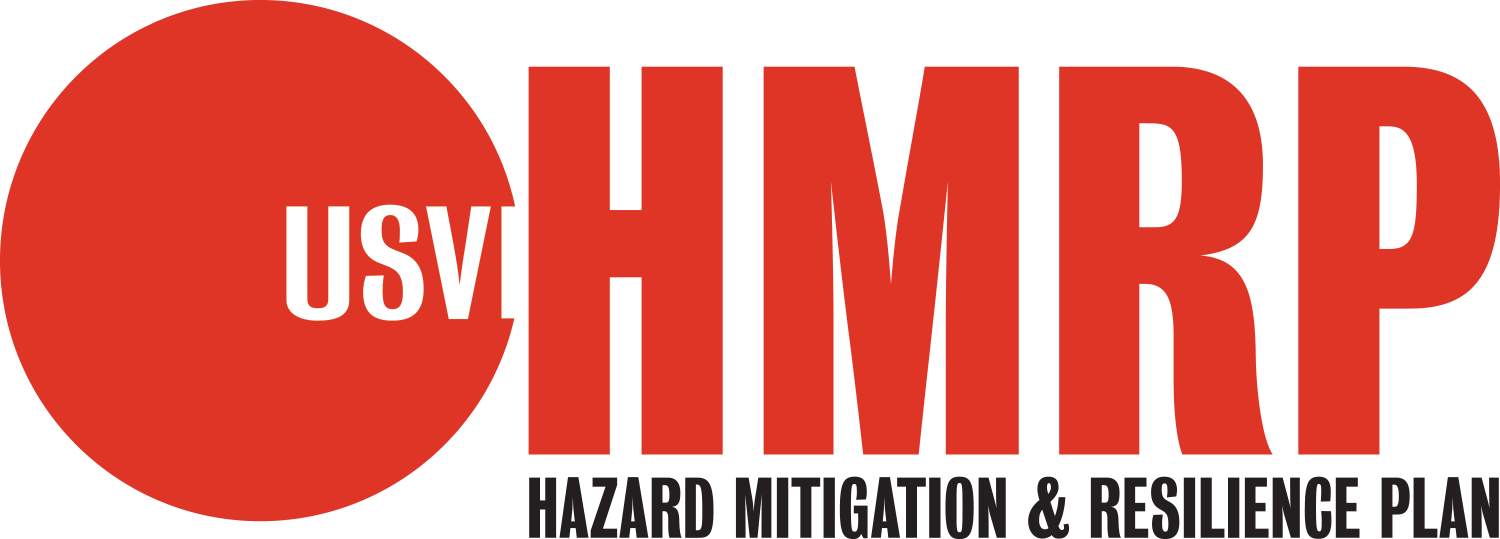Why We Need A Plan
Why The USVI Needs A Plan
Stakeholder and community-focused meetings are essential to the success of creating the new Hazard Mitigation Plan.
Why Do We Need A Hazard Mitigation Plan?
The Virgin Islands Territorial Emergency Management Agency (VITEMA) is in the process of updating and expanding the U.S. Virgin Islands (USVI) Territorial Hazard Mitigation Plan (HMP). This update is needed to comply with FEMA's Disaster Mitigation Act of 2000 which requires that State Mitigation Plans be updated and submitted to FEMA for approval every 5 years in order to maintain eligibility for non-emergency Stafford Act assistance. 2017 Pre-disaster Mitigation funds are being used to provide a concise and limited update of the current 2014 Territorial Hazard Mitigation Plan. This update is coordinated with the broader Comprehensive Plan scope of work.
The updated HMP will be the result of a multi-sectoral planning effort that integrates principles and elements of resilience, sustainability, and climate adaptation, and that will also lead to the creation of a series of associate plans that support the ultimate development of mitigation strategies. As a consequence, the HMP resulting from this planning effort will be named the Hazard Mitigation and Resilience Plan for the Virgin Islands (HMRP).
FEMA's Disaster Mitigation Act of 2000 requires that State Mitigation Plans be updated and submitted to FEMA for approval every 5 years in order to maintain eligibility for non-emergency assistance.
The University of the Virgin Islands (UVI) leads this multi-year planning effort and works hand-in hand with VITEMA. UVI is uniquely positioned to lead the creation of the plan, manage the data resulting from this planning effort, and can help build the capacities required for the implementation of mitigation and plan maintenance activities.
The results of the HMRP effort will be made available exclusively online so agencies leaders, stakeholders and the public can readily access the plan and its components. An online plan increases transparency of processes, and allow stakeholders, which include the public, to readily access information to educate themselves, and take ownership of a plan focused on building a more sustainable and resilient Virgin Islands.
Guiding Principles
The HMRP is guided by five overarching principles:
Resilience
Resilience is "the ability to prepare for and adapt to changing conditions and to withstand and recover rapidly from disruptions. Resilience includes the ability to withstand and recover from deliberate attacks, accidents, or naturally occurring threats or incidents"(1), and the first trait of a resilient society is a society where "every individual and community in the nation has access to the risk and vulnerability information they need" (2)
Sustainability
Sustainability, or sustainable development, is "a process of change in which the exploitation of resources, the direction of investments, the orientation of technological development and institutional change are all in harmony and enhance both current and future potential to meet human needs and aspirations" (3)
Climate Adaptation
Climate adaptation seeks to reduce the risk posed by the consequences of climate change.
Socio-Cultural Awareness
Socio-Cultural Awareness means awareness and integration of the differences and singularities of the different socio-cultural.
Capacity Building
Capacity building is "the process by which people, organizations and society systematically stimulate and develop their capability over time to achieve social and economic goals, including through improvement of knowledge, skills, systems, and institutions - within a wider social and cultural enabling environment" (4)
Throughout the planning effort, UVI emphasizes capacity building and integrates resilience, sustainability, and climate adaptation goals. Through a participatory approach, the plan will also reflect and align with the values and culture of the islands and will be sensitive to the various mitigation strategies that different socio-cultural groups have already adopted.
As stated above, embedded in these guiding principles is the need to develop the Territory's capacity to implement the mitigation strategies developed and proposed. UVI pays particular attention to how it can provide support to government agencies and the community to build capacity through education, research and professional development. Specifically, the opportunity to integrate UVI faculty and students into the HMRP process accelerates the development of skilled professionals who can address any deficit of expertise and management needed to implement mitigation strategies and actions.
1 The White House (2013) "Presidential Policy Directive - Critical Infrastructure Security and Resilience"
1 The National Academies (2012) "Disaster Resilience: A National Imperative" The National Academies Press, Washington, D.C.
1 World Commission on Environment and Development (1987) "Our Common Future"
1 United Nations Office for Disaster Risk Reduction https://www.unisdr.org/we/inform/terminology (accessed July 2018)

